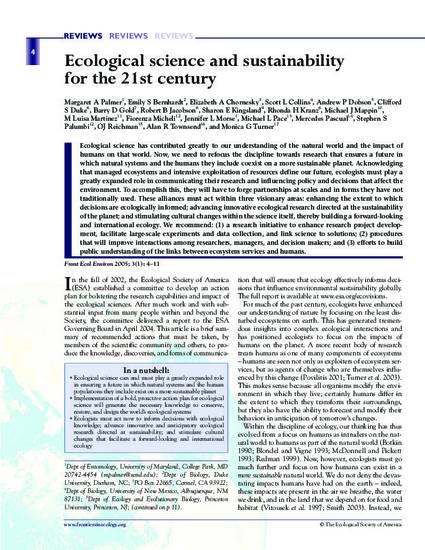
- Ecology -- Social aspects,
- Environmental sciences,
- Ecology -- Research,
- Ecosystem health,
- Ecosystem management,
- Sustainable development -- Research
Ecological science has contributed greatly to our understanding of the natural world and the impact of humans on that world. Now, we need to refocus the discipline towards research that ensures a future in which natural systems and the humans they include coexist on a more sustainable planet. Acknowledging that managed ecosystems and intensive exploitation of resources define our future, ecologists must play a greatly expanded role in communicating their research and influencing policy and decisions that affect the environment. To accomplish this, they will have to forge partnerships at scales and in forms they have not traditionally used. These alliances must act within three visionary areas: enhancing the extent to which decisions are ecologically informed; advancing innovative ecological research directed at the sustainability of the planet; and stimulating cultural changes within the science itself, thereby building a forward-looking and international ecology. We recommend: (1) a research initiative to enhance research project development, facilitate large-scale experiments and data collection, and link science to solutions; (2) procedures that will improve interactions among researchers, managers, and decision makers; and (3) efforts to build public understanding of the links between ecosystem services and humans.
Copyright 2005 by the Ecological Society of America.

This is the Publisher's PDF reproduced here with permissions.